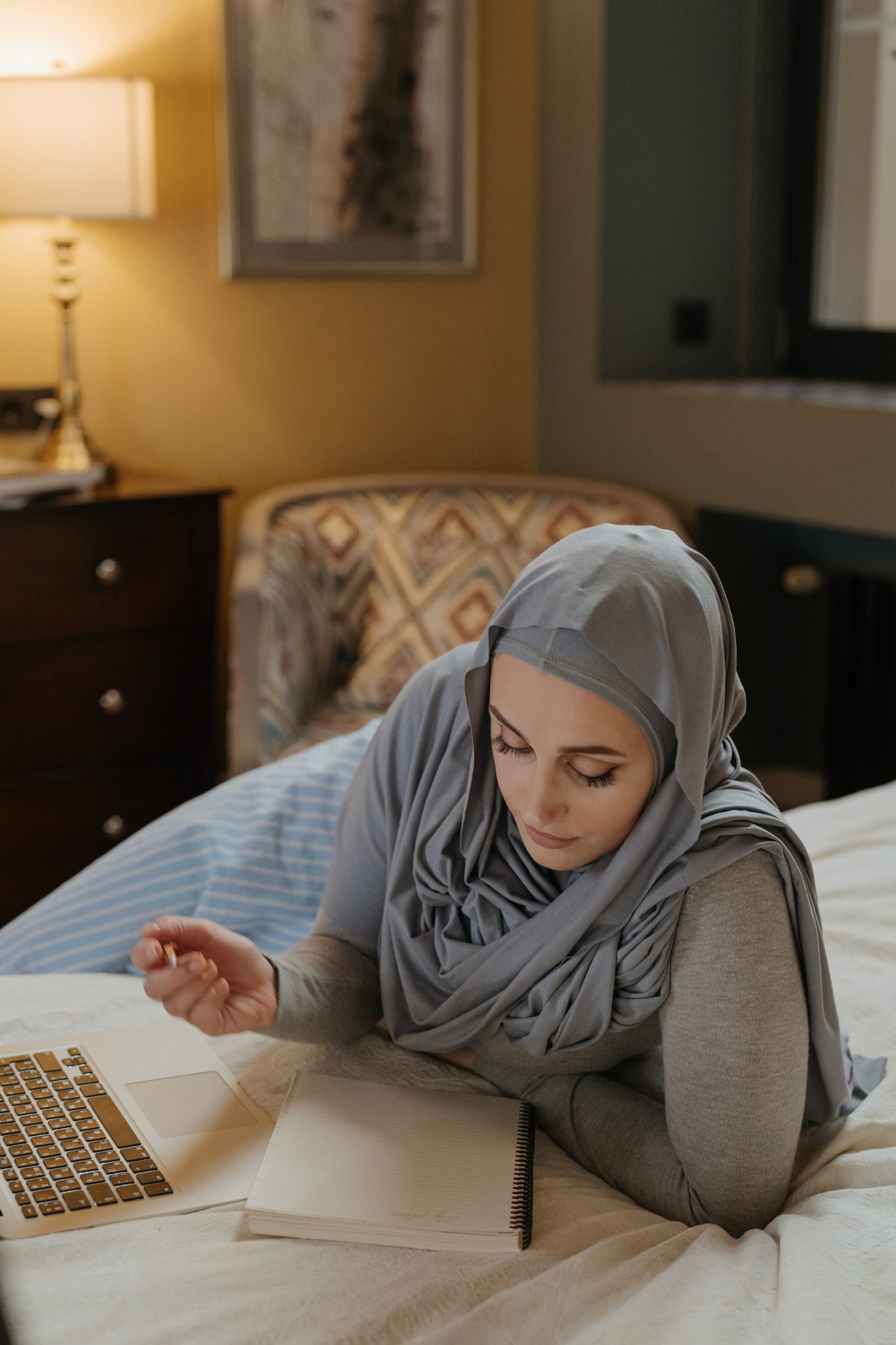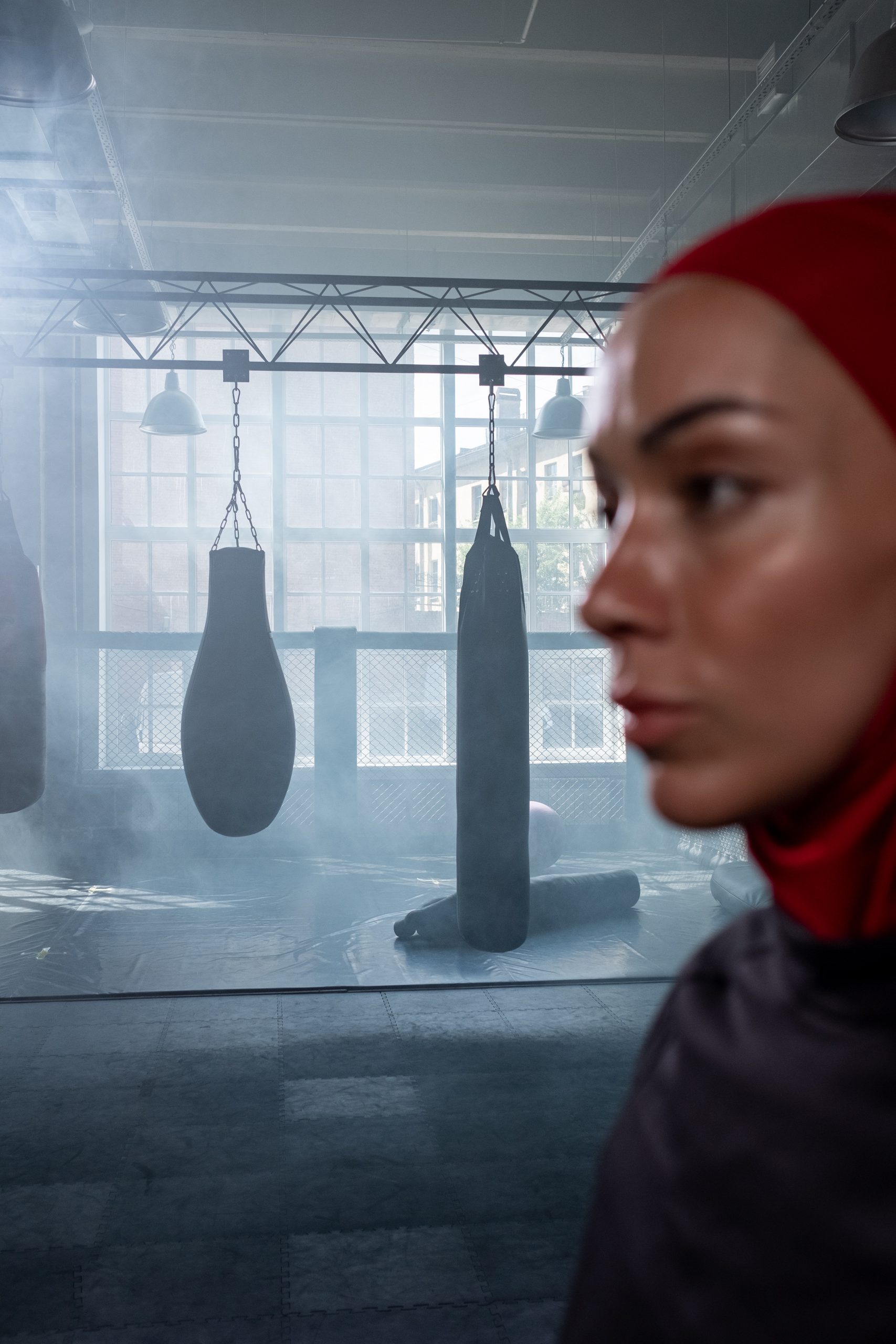“The Tone-Up” amplifies the voices of Muslim women who have something exclusive about Muslim women to talk or rant about. In this instalment, Almas Nazeer explains how her family’s misogyny is the only reason she decided to remain single.
Staying Single
Whenever a girl from the Indian Muslim community elopes or chooses to marry the man of her choice, my grandmother would call my mom to warn her about me. As a middle-class Muslim girl who chose to go to college over getting married at 18, I was the black sheep of my family. According to them, girls who go to college are destined to get married to non-Muslim bus-drivers or conductors. After all, they would say, those are the only two kinds of men we would encounter on our way to college.
I started hating men who would hit on me or talk to me sweetly since I was sixteen. These men were hurdles in the way of my education. If I fell in love with a Muslim guy, my parents would get us married before relatives figured out it was a “LOVE MARRIAGE”. And in our community, love marriages are tantamount to shame. If on the other hand, I fell in love with a non-Muslim boy, all hell would break loose. First, I would be locked-up at my uncle’s place. Then they would find me a Muslim guy from Dubai or Riyadh and I would get married to him immediately. Either way, my education would come to an abrupt halt. Falling in love with a boy meant the end of my education, and I couldn’t take that risk. So I stayed single and focused on my studies.
Getting an Education while Staying Single
When I crossed the 12th standard threshold without jeopardising the honour of the family, my parents allowed me to go to college. For three years, the great convent college for women became the creche where many Muslim girls like me would be fostered or babysat until a suitable graduate came to ask for our hand. Many of my classmates dropped out of college because they got married. I wasn’t going to be one of them.
“Muslim girls are not allowed to have ambitions” my uncles and cousins taunted me.
“What would you do with studying? You will end up washing utensils in your husband’s house.”
“Save those degrees and certificates, they will be helpful to wipe your baby’s ass when he poops”
I wasn’t allowed to go on college trips or participate in college festivals. I had to wrap myself head-to-toe in loose black abaya every time I stepped out of the house. If college ended at 4.00 pm, I had to be home by 4:30 pm.
My uncle had his spies across the city. They were not really spies. They were his narrow-minded friends, whose jobs were to keep an eye on every Muslim girl studying in college. So my uncle always got an update if by any chance I changed my bus route on any particular day. No one cared that I was actually a good student, who got straight “As” in all my subjects.
Growing Up With My Brother; A Misogyny Apprentice
My brother is only a year younger than me. And this is perhaps his biggest regret. As a younger brother, there was only so much he could boss over me. We studied in the same school. Our teachers were exceptionally fond of me because I was a talented student. They never missed an opportunity to remind him of how I was better than him. After being compared to his older sister all his school life, he had a chance to be the BETTER ONE at home
He was a “better Muslim” because his sister was dyslexic and struggled to read Arabic. She was not allowed to read or study the Quran for eight days every month. So he would be ahead of her at least in Quranic studies. The best moments of his life came during our late teenage years when he was assigned to be my bodyguard and my uncles’ personal informer in tracking my movements.
I can’t quite recall how old I was at my cousin’s wedding. I was most likely sixteen or seventeen. I had put on a saree and invited a few of my girlfriends over. After the function, I walked out of the “Women’s section” of the wedding hall to see my girlfriends off and caught sight of my uncle’s eyes following me. At that moment, I knew that a new drama awaited me.
My uncle had called my brother and said that I had left the ladies’ section like a whore and come out without “hayaa”. He said that there was no point telling my mother about it, as she was the one encouraging my “shamelessness.” He called my mother “useless” and asserted that as the man of the house, it was his job to keep the women of our house grounded.
My father was working in the middle east at the time. So my brother, who was the youngest of us all, did assume the responsibility of “guarding” us. My mother and I didn’t give too much attention to his hue and cries about me and my freedom. He got to be the man of the house whenever my father came to India during his vacations. Even before I could show him my Awards and Certificates, my brother would present him a list of my flaws.
“She has boy-friends in school, she studies with them after school” I was helping them out in Math and Science because my teacher had asked me to.
“She shakes hands with boys” — I was winning inter-school/inter-college competitions and people would congratulate me.
“She wants to go have coffee with her friends. Do other girls in our family do that? This one should have been born in a Christian family.”
My brother drew me away from my father, so much so, that I wouldn’t even tell them if I was genuinely in trouble. At the time I had real stalker problems, I knew that if I had told my brother about it, it would probably have worked against me.
I Gave Up My Hijab After Moving Out of the House
I personally don’t align with the idea that the Hijab or Burka are signs of oppression for Muslim women. In the dreadful town I grew up in, the Abaya was empowering in the way that it made me feel free to leave my house all alone, without my body-guard brother throttling behind me. I travelled to college on public transport and completed my education all while wearing the Burka. But that was the only reason I wore it. It was a black cloak that gave me freedom from misogyny at home.
I was a different person in college. I was me. I found my voice. I found the education I needed to open my mind; the strength I needed to voice out ‘inequality’. It was some sort of training my parents didn’t anticipate. We were taught to be independent, to never depend on men, or their opinions. It’s also where I learnt that “We”, as women are so much capable, individually and collectively. Thanks to this education, I gathered the courage to be financially independent. I called off a wedding, decided to stay single and adopted a kitten when my hormones started acting up.
For reasons best known to me, wearing the hijab has been on and off. I didn’t take off my hijab because of some oppressive man. In fact, putting on a Hijab for GOD was a beautiful sacrifice. While it lasted, I enjoyed the fact that it made me feel a sense of submission to God. Now, I only wear Hijab to represent the Indian Muslim community. It’s my way of giving out a message: “Educate your girls, don’t control or scrutinize their every move. Let them study and be independent. Let them have ambitions and grow into fabulous women leaders. The world needs right now”
Staying Single: I’m Never Getting Married to a Muslim Man Like My Uncle and Brother
Growing up, I felt that if I became educated and financially independent, I would be able to fight the system. It took me a long time to realise that just like me, my parents were also fighting the system. Just a few years ago, my father retired from work and started living with us. And he is nothing like my Uncle or Brother. Over the years, I had grown so anti-men, that I forgot that another breed of men like my father exists. These breed of men do not think that women are some kind of exotic Persian cats that your neighbours may steal away if you let them out of your homes.
The good thing is that my father understands quite well, the root of my paranoia. He assures my mother every time, “She can take care of herself, why are you worried?” I wrote this article after I spoke to my mother and father about the fears in my head. All of them stem from the horrific childhood I had. My mother confessed that she had kept me as a prisoner in my own house. Because she was often told, educated girls always runaway.
I am not asking anyone here to stay single or get married. It’s a personal choice. After I and a couple of my cousins completed our university studies, they went on to get married to educated men, while I started working. None of us eloped by the way. Things have started getting better in my town. My younger cousins are allowed to graduate without any fear of dropping out in between. I am sure they are still not allowed to talk to boys. But that’s really okay. I think the scrutiny has also reduced. I mean, the spies couldn’t keep up with the security features of Snapchat, Instagram and Tiktok I guess. There is this realization that if we educate our girls, they are more likely to get marriage-proposals from educated-boys to have a better life.
All these are still just a drop in the ocean. There is still so much to fight for, so many perceptions to be changed.
“Educated women don’t leave their husbands for financial freedom” No, they leave ABUSIVE husbands for a better life.
“Working women don’t respect men”. No! They respect themselves and those who respect them.
“Women who don’t wear Hijab to work are mannerless.” Hijab or no hijab. That’s none of your business. It’s their personal choice.
“Women who wear Hijab to work are not oppressed at home”. They have a bigger responsibility. They are setting examples for girls in oppressive homes that education can set them free. Back off! Stop poking your nose in their hijab!
Read more from Almas Nazeer on her Blog
Have anything to talk or rant about? ‘The Muslim Women Times’ is looking to expand the voices of Muslim women on issues affecting Muslim women. Send pitches or contributions to contribute@themuslimwomentimes.com along with your bio, social media handles and your favourite headshot. Read More on our Contributions Page.




